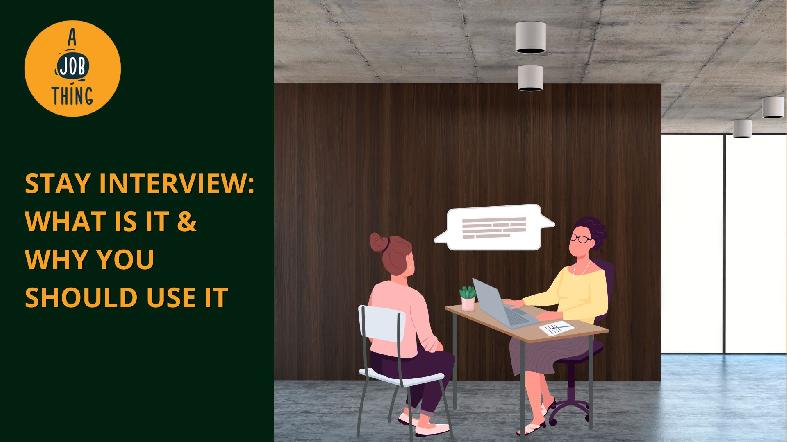
Stay Interview: What Is It & Why You Should Use It
Are You Hiring?
Find candidates in 72 Hours with 5+ million talents in Maukerja Malaysia & Ricebowl using Instant Job Ads.
HIRE NOW
In the race for talent, recruiters can't wait to find out why an employee quit after they've already left the building. Stay interviews can help you uncover what matters to your employees and what they'd want to see improved - long before they resolve to look for another job.
Continue reading to find out what a stay interview is, why it's necessary, and what questions to ask.
Stay interview: what is it.
The goal of a stay interview is not to persuade a departing worker to stay by having a one-on-one talk with them.
A stay interview is a face-to-face conversation with a long-term, high-performing staff in which you seek to understand what aspects of their job and your organisation motivate them to come in each day.
Additionally, a stay interview helps managers build trust with their direct reports by revealing what would cause a great person to leave. While exit interviews provide you with the chance to learn from your mistakes, stay interviews allow you to prevent repeated issues.
Employees must trust management for stay interviews to be fruitful and produce honest feedback. Stay interviews won't be productive until two-way communication is a central value and a cornerstone of your company culture.
Stay interview: Why you should conduct it.
Stay interviews are done with adequate time for a problem to be found and fixed. You have the opportunity to stop reoccurring issues with a stay interview. They will also benefit your employer branding strategy because they give you the knowledge you need to develop an employer brand that will attract new talent.
Additionally, stay interviews are a practical engagement tactic. You may enhance your workplace to keep outstanding staff by detecting pain spots before they become significant issues.
Stay interview: 9 questions to ask.
1. What do you look forward to every day at work?
Get to the point and discover what drives and inspires employees about their jobs, their workplace, and their daily lives at work.
2. What do you dislike about your daily job?
A stay interview's secondary objective is to find out whether the candidate has any complaints that might lead them to look for work elsewhere.
3. What are your thoughts on how employees are recognised?
You need to recognise them in a way that connects with each individual to keep them around. This query might assist you in determining the various acknowledgement techniques and the scope of your employee recognition programme.
4. How do you think our work-life balance measures up? How may it be made better?
Businesses are 25% more likely to retain employees when they offer a healthy work-life balance to their workers.
5. What was a "good day" in the last 12 months?
The manager should be able to tell from the employee's response what elements of the job positively affect their day-to-day.
6. What about your previous position did you love but no longer have?
Managers will gain insight into how to enhance their direct reports' day-to-day experiences from the responses to this question.
7. What about your previous job did you love but no longer have?
Answers to this question are likely to consider your business's culture, flexibility, working conditions, and employee incentives and benefits.
8. What are your thoughts on your way to work?
The answer to this question will demonstrate the employee's mindset shift as they approach the workplace.
9. What more can I do to enhance your experience?
The employee's manager should conduct a stay interview because they are in the best position to implement change for the individual.
Find out what the employee likes and dislikes about your organisation. Strengthen the two-way dialogue between management and employees. This question enables the employee to develop trust in their management by letting them share what they want from their role and what makes them dissatisfied.
Stay interviews, when done right, may have a massive effect on your employee retention rate. The idea is to make use of the data you get. The value of these interviews will be diminished if you don't respond to what your staff have to say. Your employees took the time to provide honest feedback, and it is your duty to strive to make improvements.
Source: builtin




